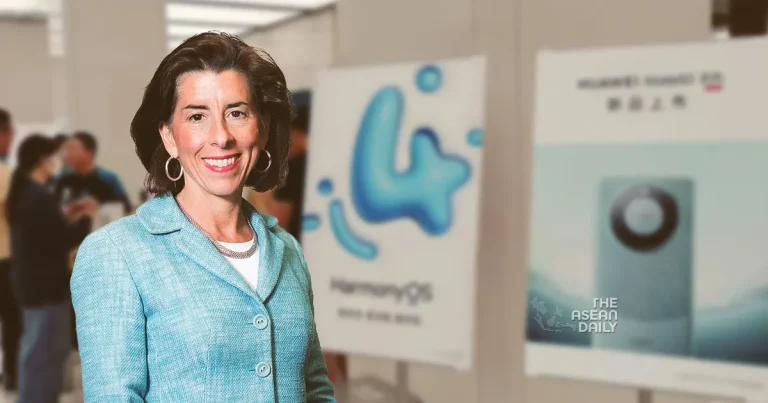22-4-2024 (WASHINGTON) In a forthright assessment of the ongoing technological tussle between the United States and China, U.S. Commerce Secretary Gina Raimondo has dismissed the sophistication of the chip powering the latest Huawei Mate 60 Pro smartphone. Raimondo’s remarks, delivered in an interview with CBS News’ 60 Minutes, sought to underscore the effectiveness of Washington’s export controls, arguing that the Chinese telecommunications giant’s semiconductor capabilities remain years behind those of the United States.
The Huawei Mate 60 Pro, released in August of the previous year, had raised eyebrows within the industry and the U.S. government alike, as the sanctioned Chinese company unveiled a smartphone powered by a seemingly advanced chip. This development was perceived by many as a symbol of China’s technological resurgence, defying ongoing U.S. efforts to cripple its capacity to produce cutting-edge semiconductors.
Raimondo, however, offered a different perspective, contending that the chip in question falls short of the capabilities of American semiconductors. “What it tells me is the export controls are working because that chip is not nearly as good, … it’s years behind what we have in the United States,” she asserted. “We have the most sophisticated semiconductors in the world. China doesn’t.”
Washington has been embroiled in a prolonged campaign to deprive Beijing of advanced semiconductor chips and the tools necessary for their production, driven by concerns over their potential military applications. Huawei, a figurehead in this technological tug-of-war, was added to the U.S. entity list in 2019 amid fears it could potentially engage in espionage activities, forcing its American suppliers to seek elusive licenses to continue supplying the company.
Despite these challenges, Huawei’s recent unveiling of its first AI-enabled laptop powered by an Intel chip has fueled anger among Republican China hardliners, underscoring the persistent tensions surrounding the export of sensitive technologies to the Chinese tech giant.
When questioned about her approach to holding businesses accountable, Raimondo remained resolute. “I hold businesses accountable as much as anyone,” she told Lesley Stahl on 60 Minutes. “When I tell them they can’t sell their semiconductors to China, they don’t love that, but I do that.”
The Huawei phone’s chip has also prompted a review by the Biden administration, aimed at uncovering the details behind what is currently considered the most advanced semiconductor China has produced to date. However, the specifics of this review have remained largely undisclosed.
As the technological rivalry between the U.S. and China intensifies, Raimondo’s statements underscore the unwavering stance of the U.S. government in maintaining its semiconductor superiority and enforcing export controls to safeguard its strategic interests.




